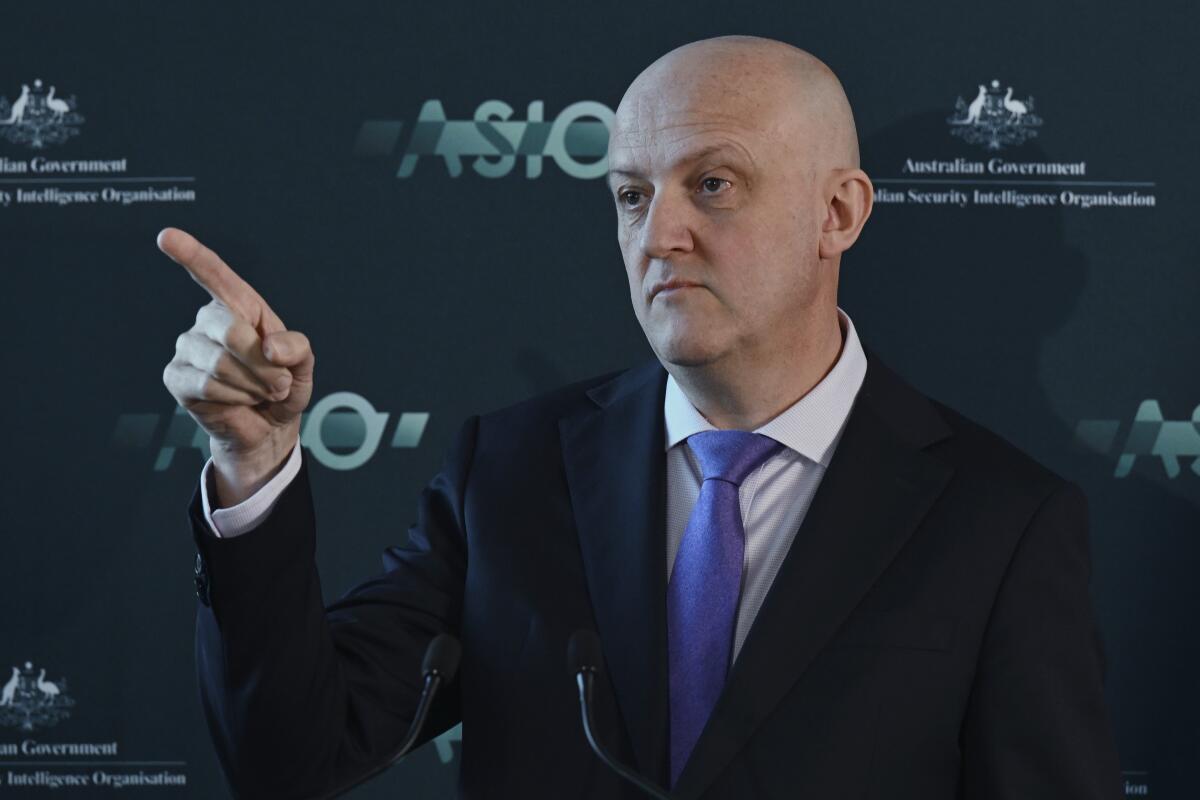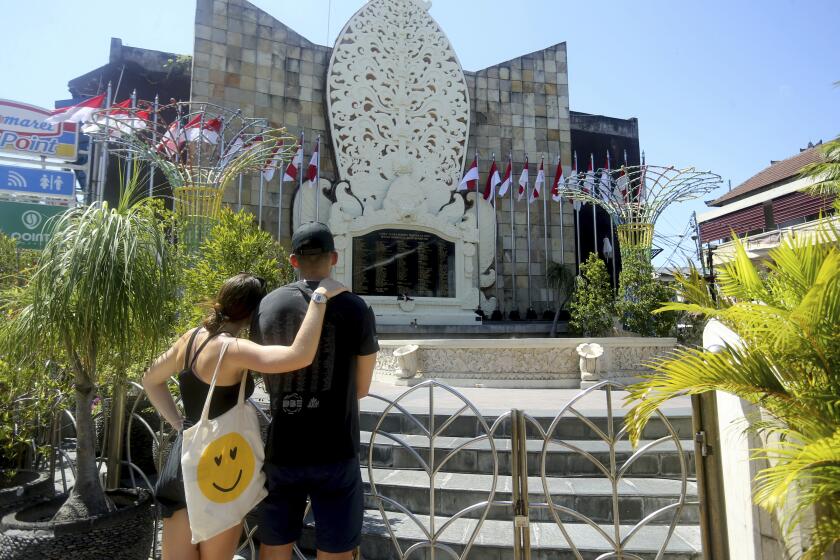Australia downgrades national terrorism threat from ‘probable’ to ‘possible’

CANBERRA, Australia — Australia’s terrorism threat level has been downgraded from “probable” to “possible” for the first time since 2014, the head of the nation’s main domestic spy agency said Monday.
The defeat of the Islamic State group in battle in the Middle East and an ineffective Al Qaeda propaganda machine failing to connect with Western youth has resulted in fewer extremists in Australia, Security Intelligence Organization Director-General Mike Burgess said.
“This does not mean the threat is extinguished,” Burgess said, adding that there have been increases in radical nationalism and right-wing extremist ideology in Australia in the last couple of years.
“It remains plausible that someone will die at the hands of a terrorist in Australia within the next 12 months,” he said. “Individuals are still fantasizing about killing other Australians, still spouting their hateful ideologies in chat rooms, still honing their capabilities by researching bomb-making and training with weapons.”
There have been 11 terrorist attacks and another 21 plots have been disrupted since the threat assessment was elevated from “possible” to “probable” in 2014, he said. Half of the foiled plots were in the first two years of the upgraded risk, when Islamic State was more prominent.
The sentence reduction means that Umar Patek could be freed on parole within days, just two months shy of the nightclub bombings’ 20th anniversary.
There have also been 153 terrorism-related charges stemming from 79 counter-terrorism operations in Australia since 2014.
Burgess warned that it was almost guaranteed the threat level would increase again.
People are being radicalized online at a swift pace, sometimes in as short a time as weeks or months, he said, but there are fewer groups taking months or years to plan sophisticated terrorist attacks with the aim of maximum destruction.
More than 50 people convicted of terrorist offenses are also due for release in the future, but only a small number will be freed by 2025, Burgess said.
More to Read
Sign up for Essential California
The most important California stories and recommendations in your inbox every morning.
You may occasionally receive promotional content from the Los Angeles Times.











